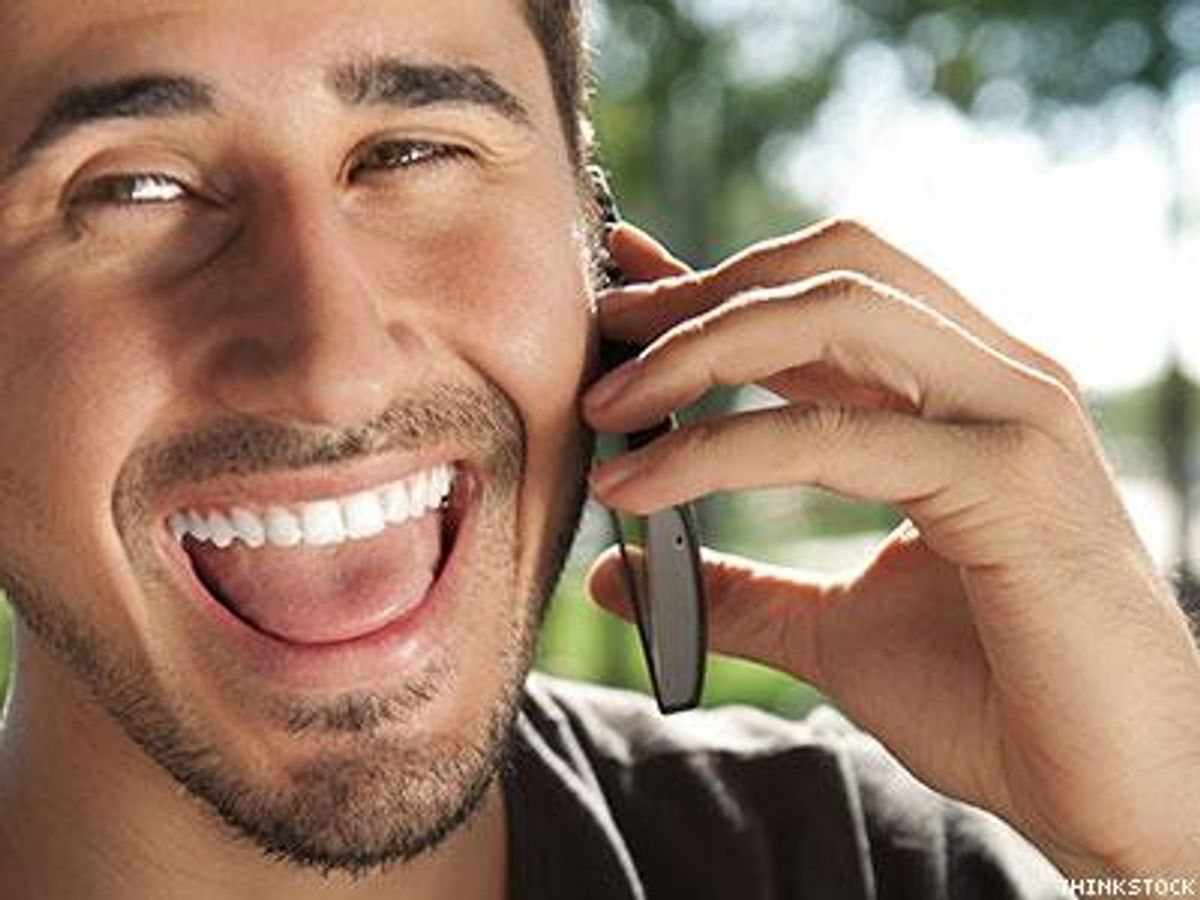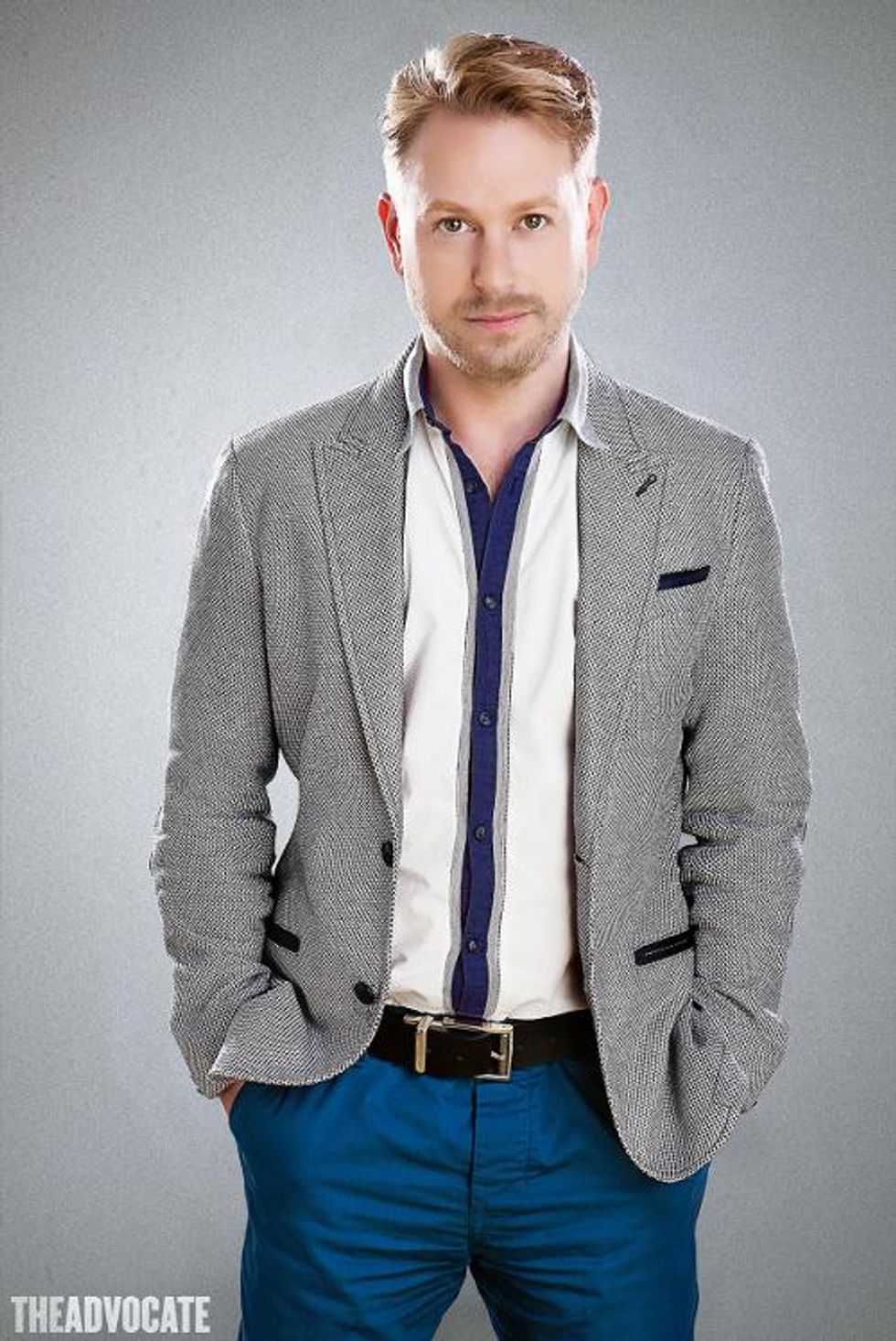
Does the world despise our voices, or is it just us?
September 19 2014 7:15 AM EST
September 24 2017 1:24 AM EST
Nbroverman
By continuing to use our site, you agree to our Private Policy and Terms of Use.

Does the world despise our voices, or is it just us?

I was reminded of my complicated feelings during a recent business meeting, where a man opened his mouth and, as the tactless saying goes, a purse fell out. Many thoughts streamed through my head, but the overarching sentiment was, Wow, that must be tough.
Seems gay voice is an issue with lots of people, almost all of them gay. Voice shapes our identity so acutely that someone finally made a movie about it; David Thorpe's Do I Sound Gay? premiered at this month's Toronto International Film Festival. Thorpe -- who sounds like my deceased nana in a good mood -- wrangled a who's who of the LGBT world to discuss how their gay voices reverberate in their heads.
Here's what our icon of composure and grace, Project Runway's Tim Gunn, says: "I'm used to hearing my voice now. When I would first hear it, I, quite frankly, would be appalled." Thorpe is just as brutally honest when discussing his film's impetus, which occurred en route to Fire Island: "I was surrounded by all these chattering gay men, and I found 'the voice' grating, irritating, and repellant." Columnist Dan Savage sums it up: "For many gay men, that's the last vestige of internalized homophobia, is this hatred of how they sound."
Everyone Thorpe speaks to, from Dan Savage to Don Lemon, is out. So why are they and so many of us ashamed of the world assuming something about us that is indeed true? It's likely not being known as gay that frightens us, but being known as a certain type of gay; effeminate, silly, weak.
On a professional level, we can imagine what gay voice broadcasts to coworkers, peers, and potential bosses. If I, as a gay man, am taken aback by it, then straight men must be appalled, as Gunn put it. My freelance writing gigs often require interviews with billionaire real estate developers and brawny construction bosses. Sometimes I can hear myself butching it up ever so slightly, pulling up volume from the bottom of my chest and excising my encouraging, maternal "Rights" and "Mmm-hmms."
In general, when it comes to pay and position, white gay men have had an easier go at work than women or racial minorities. There are many reasons behind this, of course, but one is the fact that white gays don't necessarily wear their minority status on their sleeves. When it doesn't serve a gay man to broadcast his sexuality, many can minimize or hide it, and when it behooves them they can be forthcoming, maybe when they encounter a gay coworker or a female boss who finds gay men unthreatening. Gay voice, though, upends that perk. Overtly gay speakers have to hope their workplaces aren't homophobic and, if they are, they're subjected to similar misogynistic landmines women deal with on a daily basis.
This is all anecdotal, of course. There is no hard proof that gay voice is indeed a professional deficit. All of the gay men in Do I Sound Gay? have accomplished enough to give George Clooney or Brian Williams a complex. Recent data shows gay and straight men earn about the same amount of money (except when you compare gay and straight couples; two men usually make more than a man and a woman, sadly). Something tells me that, in the workplace, it's more of an issue in our heads than in anyone else's. The shock of someone's voice soon recedes and what most soon take notice of is ability, work ethic, and personality -- a baritone won't get the TPS report delivered on time.
It's clear that gay voice matters the most to gays. So when two of them are together, say on a first date, is gay voice like dandruff or white socks with black shoes? I wondered how many gay men would admit that an effeminate voice is a nonstarter when it comes to dating. A survey among gay men at the Here Media offices (parent company of The Advocate) found that it's not a dealbreaker, or at least most wouldn't admit it to be. One young editor said it only bothers him when the image doesn't match the acoustics, i.e., when a butch bro sounds like Minnie Mouse. The Advocate's Daniel Reynolds, another millennial, says his comfort with gay voice, his own and others, has grown with age. He admits his "voice changes depending on the audience," and his gay voice becomes more prominent with other high talkers around."My gay voice is my Southern accent," he says in jest (he's from Jersey).
When I was single I met an adorable guy on Grindr. We IM'd back and forth for days, keeping it flirty and sweet. When I met him, his intense gay voice changed my whole image of him and I quickly lost interest. Maybe I'd feel differently now, but my reaction at the aforementioned business meeting tells me I still have homophobic hang-ups. But as punishment for my shallow, self-hating behavior, I made myself listen to my own voice the other day. I tried to speak as normally as possible so I could really hear how I sound to others. I was surprised to hear that I didn't necessarily sound super-gay -- you may disagree -- but I did come off nasal and a bit annoying. Feel free to listen below and judge. In case you're wondering what I recited, it was a spoken word rendition of "Express Yourself."
NEAL BROVERMAN is a columnist for The Advocate and the editor in chief of Out Traveler. Follow him on Twitter @nbroverman